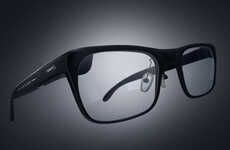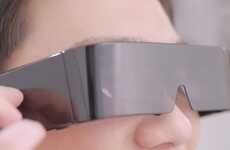
The LTCCS System Enables the Deaf To Communicate
Rahul Kalvapalle — October 28, 2015 — Tech
The Live Time Closed Captioning System (LTCCS) is a new augmented reality display system that's notable in a number of ways, most interesting being the fact that it has been essentially developed by a group of New York City teenagers. The high-performing group was led by Daniil Frants, famous for interning at the MIT Media Lab when he was only 14 years of age.
This augmented reality display system comprises a trio of components -- a compact microphone that is clipped onto the user's clothing, a tiny pocket-sized microcomputer and a Google Glass-like display. This setup is clipped onto a pair of third-party glasses that show the user the text superimposed over their view. The advantage of this system is that it minimizes the lag between words being spoken and displayed.
Ultimately, this is a highly innovative augmented reality display with even more room for improvement, which is exciting.
This augmented reality display system comprises a trio of components -- a compact microphone that is clipped onto the user's clothing, a tiny pocket-sized microcomputer and a Google Glass-like display. This setup is clipped onto a pair of third-party glasses that show the user the text superimposed over their view. The advantage of this system is that it minimizes the lag between words being spoken and displayed.
Ultimately, this is a highly innovative augmented reality display with even more room for improvement, which is exciting.
Trend Themes
1. Live Time Closed Captioning System (LTCCS) - A new development in the field of augmented reality display that allows the deaf to communicate using real-time closed captioning.
2. Compact Wearables for Disability Assistance - The development of compact, wearable technology that enhances the social experiences of people with disabilities.
3. DIY Innovators Creating New AR Technologies - The rise of younger innovators taking part in the development of augmented reality technology.
Industry Implications
1. Healthcare - This technology has the potential to provide an improved quality of life for the deaf and hard of hearing, making it valuable for healthcare providers.
2. Technology - Tech companies can create more accessibility features and user-friendly tools like this to cater to a larger group of consumers.
3. Media and Entertainment - The LTCCS system can be integrated into various media and entertainment forms like movies, music performances and sporting events for a better-inclusive experience.
2.7
Score
Popularity
Activity
Freshness



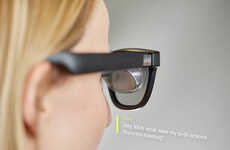
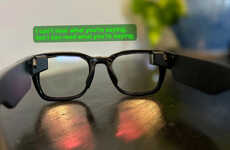
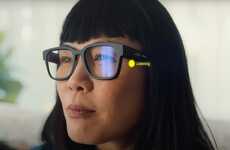
 play_circle_filled
play_circle_filled



